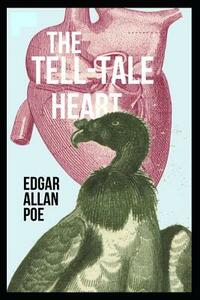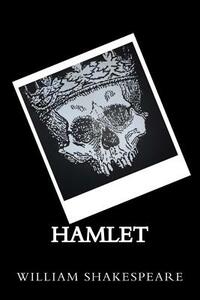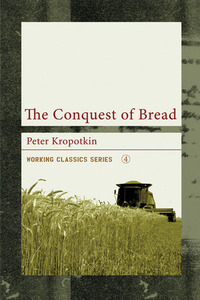Take a photo of a barcode or cover
mars2k's Reviews (234)
adventurous
funny
hopeful
tense
medium-paced
Loveable characters:
Yes
Diverse cast of characters:
Yes
Flaws of characters a main focus:
Yes
The Good Doctor is a book about dogma, exploring the ways in which religion is used, by some, as a way to “justify” violence and oppression. Another key theme is misinterpretation, with entire belief systems being based on misunderstandings or even deliberate lies concocted by corrupt authority figures to further their own agenda. With the added framework of time travel and the context of the Doctor Who universe as a whole, this all makes for a very interesting concept.
What I liked the most was how in-character the Doctor and her companions were throughout. I often found myself smiling just because the Doctor had done something very Doctor-ish or Graham had said something in a particularly Graham-y way. This is made all the more impressive when you consider that this book was written before Series 11 aired, so this uncanny characterisation was based on some brief character notes and a few script extracts.
I appreciated the meta-commentary regarding the misogyny the Doctor is targeted with now that she’s a woman. The Good Doctor was the first NSA novel to feature the Thirteenth Doctor, so it’s good to see this issue addressed straight away – by a trans woman, no less. On the other hand, I’m not sure how I feel about the Loba being anthropomorphic dogs given their role in the story as a race allegory. It’s strange seeing them being dehumanised and described as animals when they literally are animals, albeit sapient ones.
Some points felt a little belaboured, while others weren’t explored in depth – or at least not as thoroughly as I would have liked. It’s worth noting that the story is fairly slow in the first half, though it does pick up around the midpoint.
I’m giving this book four stars out of five. I enjoyed it overall, and I would recommend it to any fans of the Thirteenth Doctor/“Team TARDIS” era of the show.
dark
emotional
tense
medium-paced
Strong character development:
Complicated
Loveable characters:
No
Diverse cast of characters:
No
Flaws of characters a main focus:
Yes
I first read The Tell-Tale Heart in high school and it's stuck with me ever since. It's a classic of Gothic horror, and as such it's incredibly tense and highly emotional.
The premise itself is fairly simple, but Edgar Allan Poe's writing style – with emphatic language, frequent repetition, short sentences, and interjecting clauses – elevates this concept to something truly captivating. Perhaps the most fascinating aspect is that the killer tries so hard to prove their sanity and their skill, but makes no effort to pretend they are innocent.
This is a short story, and I really do mean short. It's easy to read in one sitting, and you'll be on the edge of your seat throughout.
A must-read.
The premise itself is fairly simple, but Edgar Allan Poe's writing style – with emphatic language, frequent repetition, short sentences, and interjecting clauses – elevates this concept to something truly captivating. Perhaps the most fascinating aspect is that the killer tries so hard to prove their sanity and their skill, but makes no effort to pretend they are innocent.
This is a short story, and I really do mean short. It's easy to read in one sitting, and you'll be on the edge of your seat throughout.
A must-read.
Graphic: Death, Mental illness, Panic attacks/disorders
Minor: Gore
General creepiness/tension, hallucinations, murder
dark
emotional
mysterious
reflective
sad
tense
medium-paced
Strong character development:
Complicated
Loveable characters:
Complicated
Diverse cast of characters:
No
Flaws of characters a main focus:
Yes
Hamlet is William Shakespeare's best play, in my opinion.
I personally think the story works best with the understanding that Hamlet is/becomes aware that he's a character in a play. It explains several seemingly erroneous remarks, like "while memory holds a seat in this distracted globe" (referring to the Globe Theatre), and the fishmonger scene (in which he recognises an actor as a fishmonger rather than as Polonius, the character he's playing). It also recontextualises the famous "to be or not to be" monologue, which can be read as Hamlet being conflicted between the "real world" and the fictional story he is a part of.
I could go on citing more examples but this is a review, not an essay.
Even without my favoured interpretation, the play is pretty good. There are plenty of other ways to read it, such as a conflict between mortal vengeance and divine justice, a philosophical pondering on the nature of existence, or a more straightforward revenge story with Hamlet feigning madness to make himself seem less suspicious.
Whichever headcanon you prefer, I would definitely recommend reading or watching Hamlet if you have the time and I hope you find it as enjoyable and thought-provoking as I did.
I personally think the story works best with the understanding that Hamlet is/becomes aware that he's a character in a play. It explains several seemingly erroneous remarks, like "while memory holds a seat in this distracted globe" (referring to the Globe Theatre), and the fishmonger scene (in which he recognises an actor as a fishmonger rather than as Polonius, the character he's playing). It also recontextualises the famous "to be or not to be" monologue, which can be read as Hamlet being conflicted between the "real world" and the fictional story he is a part of.
I could go on citing more examples but this is a review, not an essay.
Even without my favoured interpretation, the play is pretty good. There are plenty of other ways to read it, such as a conflict between mortal vengeance and divine justice, a philosophical pondering on the nature of existence, or a more straightforward revenge story with Hamlet feigning madness to make himself seem less suspicious.
Whichever headcanon you prefer, I would definitely recommend reading or watching Hamlet if you have the time and I hope you find it as enjoyable and thought-provoking as I did.
challenging
hopeful
informative
inspiring
slow-paced
The Conquest of Bread is one of those books that's lauded as a must-read by many leftists, specifically anarchists. Its reputation as a classic of leftist literature made it seem a little daunting at first, but I'm glad I did eventually read it.
It's kind of charming the way Kropotkin talks about steam trains and central heating like they're these mind-bogglingly advanced and sophisticated technologies. They must have been seen that way when they were new, I suppose. There are plenty of statistics which aren't particularly relevant now, over a century later, but would have bolstered his arguments at the time. There are some parts which drag, I must admit.
Though this book is very much rooted in the nineteenth century, much of its content is still relevant today. The "question of bread" is the book's most significant point, emphasising the importance of making sure everybody's basic needs are met. Kropotkin is not afraid to admit that his ideas are utopian (which is something I admire) though he also offers a more materialistic argument as well – that workers cannot work if their basic human needs aren't satisfied. I find him to be quite convincing.
I would definitely recommend this book to leftists, regardless of their level of experience/familiarity with anarchism, or where they fall on the idealistic vs pragmatic scale.
It's kind of charming the way Kropotkin talks about steam trains and central heating like they're these mind-bogglingly advanced and sophisticated technologies. They must have been seen that way when they were new, I suppose. There are plenty of statistics which aren't particularly relevant now, over a century later, but would have bolstered his arguments at the time. There are some parts which drag, I must admit.
Though this book is very much rooted in the nineteenth century, much of its content is still relevant today. The "question of bread" is the book's most significant point, emphasising the importance of making sure everybody's basic needs are met. Kropotkin is not afraid to admit that his ideas are utopian (which is something I admire) though he also offers a more materialistic argument as well – that workers cannot work if their basic human needs aren't satisfied. I find him to be quite convincing.
I would definitely recommend this book to leftists, regardless of their level of experience/familiarity with anarchism, or where they fall on the idealistic vs pragmatic scale.



